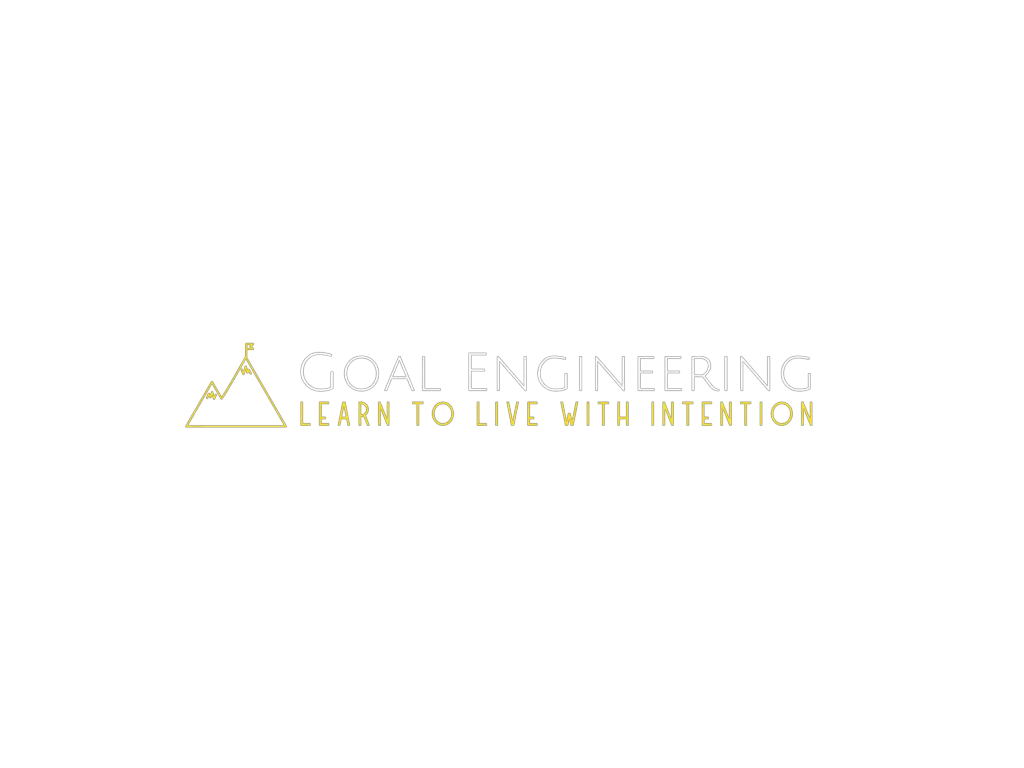You know that feeling you get when you have a really productive day? It feels good to work hard. Not only that, but efficiency makes you more money, frees up more of your time, and helps you grow all of which will make you happier. But distractions make it hard to take advantage of these benefits that come from productivity. You’d love to learn how to stop wasting time, but is it really possible?
Here are 11 tips to help you stop wasting time right now:
- Understand what counts as wasting time
- Learn what’s making you waste time
- Take a break if you have to
- Don’t be too hard on yourself about wasting time
- Listen to motivational music
- Play to your strengths
- Use the Pomodoro Technique
- Make a Ulysses Contract
- Use technology against itself
- Know how you use your time
- Have Killer Goals to Inspire You
I’ve personally tried every one of these myself and know that they work. Just last week I used most of them to significantly reduce the amount of wasted time during my week.
I’m confident that you can do the same if you’ll pick just one of these and try it out right now.
1. Understand What Counts As Wasting Time
“Focus on being productive instead of busy.”
– Tim Ferriss
It’s possible to be productive and still be wasting time.
Work shouldn’t be done at all if it doesn’t bring results. There are some activities that you know make you feel like you’re working but don’t actually get you anywhere.
Email is just one example. But if you’re working on a project or job that you don’t love, you’re also wasting your time because you can be 10x more productive and happy if you play to your strengths. More on that in tip six.
For now, learn to recognize when you’re doing work that doesn’t move the needle. Constantly ask yourself “is this effective? What will result from the work I’m doing right now?” If the answer is nothing, then stop using it as an excuse to do what you really should be doing to see the results you want.
Sometimes, however, what you think is wasted time is what you should be focusing on even more.
Over the last few years, I’ve worked hard to become my own boss so I could be home with my family every day. A year or two in, however, I was beginning to lose sight of why I’d left the 9-5 in the first place.
I kept thinking I had to be productive at all moments of the day. At one point, this made me think that I was wasting time by spending too much time with my daughter when she’d get up early.
Thankfully, I realized my mistake fairly quickly and began enjoying those moments with her that I’d worked so hard for.
Don’t let the assumption that you always have to be working to accomplish your goals get in the way of prioritizing what’s really important. Refocus yourself if something shouldn’t be done at all, or if you should be focusing on a higher-priority goal.
2. Learn What Makes You Waste Time
“You begin to fly when you let go of self-limiting beliefs and allow your mind and aspirations to rise to greater heights.”
– Brian Tracy
What if I told you that wasting time is sometimes a good thing? You might think I was crazy but think about how hard it is to be productive all the time. It’s easy to see how being smart about when you allow yourself to waste time is one of the best things for you.
I know that I’m most effective in the mornings. You probably are too. I turn my phone on do not distrub and commit to focus from 6 am to noon every day. I use the Pomodoro Technique, Ulysses Contracts, and everything else I’ll teach you in the rest of this article.
Once those morning hours are over though, I know that my effectiveness plummets, so I let myself relax a little bit.
Sometimes, you need a break, and that’s okay. Those gurus that tell you to hustle and work every day are wrong. You’re more effective when you take breaks and your work is better, which means you’ll make more money. We’ll talk about this more in the next tip.
Sometimes, though, it’s hard to resist scrolling through social media when you really should be working. Why does this happen? Well, often you’re simply in the wrong mindset.
I find that when I’m wasting time it’s one of a few things:
- I’m afraid I’ll do something wrong or imperfect.
- I don’t know what I should be working on.
- I’m aware of what I need to do but don’t know how to do it.
- Frustration at previously wasted time.
I’ll show you how to beat all of these in the next few tips. Knowing that these mindsets are keeping you from working hard is the first step to beating them, which I’ll teach you how to do in the next few tips.
3. Take A Break If You Have To (And How to Know If You Need One)
“Taking a break can lead to breakthroughs.”
– Russell Eric Dobda
If you’ve ever tried to work late or through the weekend, you know how hard it is to stay motivated and focused after working hard all day or week. That’s because your body and mind are tired and need a break.
If you don’t take time off, you’ll be more prone to mistakes that can prevent you from a promotion or even worse, make you lose your job.
Sometimes, you’re wasting time because you really have to disconnect from work and let yourself play. So how do you know when you need time off or if you’re really wasting time? You can find the answer by looking at how you’ve been doing the last few days.
If you’re normally a hard worker and have just been struggling the last day or so, then it’s time for a break. The afternoons and weekends are this time for me. I know that I’m tired, so I’m not as hard on myself about wasting time.
But if it’s Monday and you’ve been taking a break all weekend, it’s time to re-focus and get back to work. This is also true for the morning, when you’ve just been resting all night.
This can happen on a daily, weekly, or monthly basis. Just think of how hard it is to focus in the entire month of December! Sometimes, though, you can have an entire year that’s so busy you need a break. 2020 was one of those for a lot of people, but especially for me.
First, the pandemic hit, then we had a baby a month early. We also had to buy a new car because our old one was too small for three kids. I was still in graduate school for all of this, but finally graduated. Then just a couple of months after that, we bought a house.
It was a crazy but amazing year. I constantly felt like I wasn’t working hard enough. But I was actually spending a lot more energy than normal on all those life events. It started to make sense why I was so unfocused. Now, I’m completely free of big life events like that, and I don’t waste time anymore.
Learn to recognize when life gets you down and let yourself take some time off when it does. If you need some help getting back up after setbacks, you’re in luck, because we’ll talk about that next.
4. Don’t Beat Yourself Up About Wasting Time, Just Get Back To Work
“You can spend minutes, hours, days, weeks, or even months over-analyzing a situation; trying to put the pieces together, justifying what could’ve, would’ve happened… or you can just leave the pieces of the floor and move on.”
– Tupac Shakur
I plan my days each night and regularly revise my plans as distractions come up throughout each day. One day a couple of years ago, I felt discouraged that I had wasted the previous hour entirely. Then it hit me. That wasted time doesn’t mean the rest of the day has to be a failure.
I quickly realized these truths:
If you’ve wasted a few minutes, that doesn’t mean the hour is a failure.
An hour of wasted time doesn’t mean that the entire day is a failure.
When you’re distracted for a day, that doesn’t mean your week is a failure.
If you’ve wasted a whole week, the whole month is not a failure.
Even if you do waste a whole month, the year is not a failure.
And when years like 2020 derail you for a while, your life is not a failure.
If you need help remembering not to get down about wasting time, pick one of the sentences above and write it somewhere you’ll see regularly.
At every level of wasted time you can get back up and get going again, you just have to look at the bigger picture.
Combine this with planning your day at regular intervals, and you’ll soon find a lot more motivation to stop wasting time! To boost that motivation even further, pay attention to my next tip.
5. Listen to Motivational Music
“Music does a lot of things for a lot of people.
It’s uplifting, it’s encouraging, it’s strengthening.”
– Aretha Franklin
In the middle of 2020 I was feeling discouraged and tired from all that was going on in my life. It was mostly good, but just exhausting to have it all happen in such a short time.
I knew that I needed a break, and had been taking one, but I still didn’t feel like I wanted to work even when it was time to.
In one of my time-wasting internet-surfing sessions, I came across an inspirational music playlist and started listening to it. I began feeling better and kept the tab open in Google Chrome to re-listen to it each day.
One day not long afterward, I got into a flow state. I began to feel excited about what I was doing, worked really hard, and finally felt inspired to keep at it. As I listened, memories of all my past wins flooded back into my mind to motivate me even further.
Sometimes, all you need to stop wasting time is plugging in some headphones and getting pumped up by music that inspires you.
And if you’re feeling skeptical, just remember that science proves that music can make you work harder.
Listening to music you like is a proven way to make your brain release dopamine, a neurotransmitter that lowers stress and anxiety and increases happiness. It also boosts your athletic performance and helps you focus.
To take advantage of the power of music, make a playlist of music you know that you like because familiarity helps improve the benefits. Also make sure it’s music that doesn’t have lyrics, as words in songs can make you less productive.
6. Play to Your Strengths and Interests
“Success is achieved by developing our strengths, not by eliminating our weaknesses.”
– Marilyn Von Savant
A couple of years ago I was working full-time as a Civil Engineer. I mildly enjoyed what I did, and was good enough at it, but just didn’t feel like I got it as well as the other engineers. Every day I would read about psychology, self-improvement, and writing. I yearned to explore other career options.
I soon realized that I wasn’t in a career that played to my strengths.
Over the course of the next couple of years, I worked really hard to figure out what I wanted to do. Eventually, I got lucky enough to begin working for myself and it’s only gotten better from there.
Today, I’m more productive and happier than ever. I look forward to each day. I used to get a feeling of dread and worry each night and especially on Sunday nights at the thought of having to go back into the office the next day.
Now, those feelings have been replaced by an excitement to do work that I love and that I know that I’m much better at.
When you find work you love, you will be more productive, confident, happy, and much more. This will make you healthier and increase the opportunities you have to earn more money.
I remember before starting my career transition I asked a friend in the same field how he stayed focused every day. He told me that he doesn’t have to worry about it because he’s doing work that he loves. I found the same thing once I switched.
In other words, you won’t even need to worry about how to stop wasting time if you find the right work for you.
How to Find Work You Love
Figuring this out depends on where you’re at in life.
If you are in college, you should take time off to explore what interests you. Find people working in the fields you’re considering and spend a lot of time with them to get to know the work and whether you’ll enjoy it or not.
Take your time to choose your major, it’s a lot easier to switch careers before you graduate. Trust me, I have a degree in Civil Engineering and I’m now a writer!
If you’re already in your career, don’t worry, I’ve been there myself and know how difficult it is. I had a family when I realized I needed to change careers. Luckily I had a supportive father, who gave me confidence after I asked him about it and told me that people change their careers all the time.
Now I know he was right, and I’m confident that you can change your career too if you want to.
The easiest way to go about it is to keep your day job and start a side-hustle. At first, make your search for what you love your “side-hustle.”
In the digital age you’ll be surprised at how much you find about how easy it is to get into a new career! Keep studying and working on what you’ve found that you like and you’ll be in a new career in no time!
7. Use the Pomodoro Technique
“You’re more likely to act yourself into feeling than feel yourself into action.”
– Dr. Jerome Bruner, Harvard Psychologist
The idea of focusing for a whole three or four hours seems overwhelming, right? I mean, who can actually focus for that long? I know I can’t! I’ve tried before, and it usually meant an hour of work and two or three hours of wasting time!
But what if you could be productive for just 80% of that time? What if you could let yourself have just enough time to take short breaks that you could stay productive the rest of the time?
This is where the Pomodoro Technique comes in handy. Francesco Cirillo created it in the 80s and since then, it’s been used by millions to help them stop wasting time.
Here’s how it works:
- Pick a task you need to do. Don’t choose a project, just one task.
- Set a timer for 25 minutes.
- Work without letting yourself get distracted.
- Stop working when the timer goes off and put a checkmark in your notebook.
- If you have four checkmarks or less, take a five-minute break, then repeat steps 2-5.
- Once you have four checkmarks, take a 30-minute break, and start your checkmark counter over again.
I’ve tried this myself hundreds of times and there’s nothing quite like plugging in my headphones, setting a timer, and just crushing it for 25 minutes straight.
8. Make a Ulysses Contract
“Stop wasting time with trivial matters that don’t add value to your life or push you one step closer to your goals.”
– Edith Henderson
In Homer’s The Odyssey, the main character Ulysses (Odysseus in Greek) has to sail through the dangerous land of the Sirens on his way home. He knows that the Sirens’ song will lead him to his death, so he has his men tie him to the mast of the ship and promise to not let him go no matter what.
Because of his preparation, Ulysses navigates the Sirens’ domain without dying, and eventually makes it home to his family.
He succeeds because he anticipated a future moment of temptation and prepared against it by limiting his freedoms.
This is called a Ulysses contract, and you can make one too. All you have to do is know what will tempt you to waste time and prepare ahead of time so that it can’t distract you.
Each week I do a weekly review that shows me what my three most important goals are for the week ahead. Last week I realized the huge impact my top goals would have on my life, so I made a Ulysses contract to help me.
I promised my wife that if I didn’t accomplish my goals, I’d take the whole family swimming, which I hate. I love my family so we still went out and did fun things that week, but I still remembered my promise to my wife when it was time to get to work.
Whenever distractions came up that tempted me to waste time, I easily fought them off because I had already promised that I had to get them done or else I’d suffer the consequences.
It worked and I had one of my most productive weeks ever!
If you want to learn more about how to use a Ulysses contract to help you stop wasting time, click here.
9. Use Technology to Your Advantage
“Technology is a useful servant but a dangerous master.”
– Christian Lous Lange
The internet and your devices are wonderful things. On the one hand, you can use them to find information, connect with people all around the world, and start a business from your home. But more often than you’d like to admit, technology makes it hard to stop wasting time.
Technology is always either helping or hurting you. You’re in charge of which one it is at every moment. The good news, though, is you can use technology against itself.
StayFocusd is a Google Chrome extension that I use every day to limit the amount of time I can spend on the internet. I also use News Feed Eradicator to eliminate the news feeds on Facebook and other social media sites.
I also often combine a Ulysses contract with the power of technology to keep me out of social media sites. Changing my Facebook password is something I frequently do. It makes it hard enough for me to get into my Facebook account that I almost never get distracted by it anymore.
Another form of Ulysses contract I use is that I’ve made a personal commitment to never download social media apps on my phone. I can access them in the browser on my phone if I absolutely have to, but even then I’m signed out most of the time!
Most phones also have digital wellbeing apps that let you restrict certain apps and websites for a period of time.
Another tactic that you can use with any of these above is to put the settings for your limitations behind a password, but have somebody else set it.
I love playing the Nintendo Switch, for example, but without limits, I know that I’ll waste too much time on it. So I had my wife set up parental controls and only she knows the password and pin, so I can’t get in and change the settings if I’ve been playing for too long!
Whatever technology is making you waste time, there is a way to use it against itself, you just need to find it.
10. Know How You’re Currently Using Every Moment and Stop What’s Wasting Your Time
“Until we can manage time, we can manage nothing else.”
– Peter Drucker
In The Effective Executive, Peter Drucker gives an easy-to-follow way to manage time better.
First, you need to know what you’re spending time on. To do that, you have to write down what you’ve been doing every moment for a couple of weeks straight.
Writing is necessary because you can’t remember what you did at 3 pm yesterday, so you don’t know if it was wasted time or not. You need to be able to see it.
The next step is to go through each activity and ask yourself a simple question:
“What would happen if I quit doing this?”
If you know that everything would be a mess if that activity didn’t happen, then keep it. But if you find that nothing would change if you quit certain things you’ve found exactly what’s wasting your time.
11. If You Want to Stop Wasting Time You Must Have Killer Goals
“The tragedy in life doesn’t lie in not reaching your goal. The tragedy lies in having no goal to reach.”
– Benjamin E. Mays
Have you ever struggled with how mundane everyday life gets? Once you’ve gone running every day for even a couple of weeks, it gets boring and hard to continue. But what if you could keep the inspiration with you?
I’ve been feeling this recently, as I do frequently throughout the year. But I know that my long-term goals won’t happen if I don’t do the work every day. I know that the most successful people had to stay consistent to get to where they are.
That means that they keep going even when it gets boring. But the can only do that because of that bigger vision they have for their lives. Take the time to find what you want and you’ll feel motivated to stay consistent because those daily actions are part of a bigger goal.
Another vital element to keep your goals inspiring and attainable is reviewing them weekly. Simply ask yourself how they went the last week and give yourself a score from 1-10. Make sure you’re still enjoying your goals and that they inspire you. If you’re losing inspiration, don’t be afraid to change them or change your methods!
I’ve been doing this every week for nearly two years now and I’ve stayed consistent at my goals the entire time. I now have the power to change my life because whenever I want to waste time I just think of my long-term goals and get the motivation back.
For more help setting and achieving goals that inspire you, click here.
Key Takeaways You Can Try Today
There’s a lot to learn from all of these tips that will help you stop wasting time. I know they’ll work for you because I’ve done them myself and still use them every week.
Here they are again, to help you remember:
- Understand what counts as wasting time
- Learn what’s making you waste time
- Take a break if you have to
- Don’t be too hard on yourself about wasting time
- Listen to motivational music
- Play to your strengths
- Use the Pomodoro Technique
- Make a Ulysses Contract
- Use technology against itself
- Know how you use your time
- Have Killer Goals to Inspire You
Don’t try all of these at once. Just pick one, try it today, and you’ll soon find that you’re getting a lot better at not wasting time.
Armed with the power to stay focused, you’ll be able to stay productive, which will make you happier, healthier, and more successful in every aspect of life.





